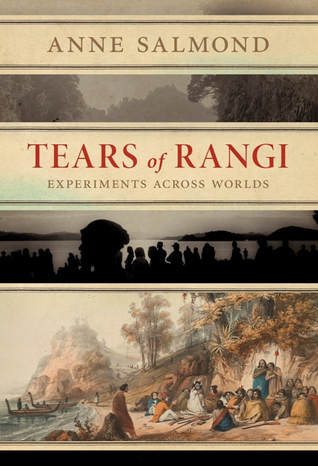
by Anne Salmond
What an extraordinary privilege it is to be reviewing this marvellous book.
At last I got some understanding as to how the fraught relationship between Maori and Pakeha arose. The two parties held such diametrically opposed philosophical positions when they first came into contact.
The missionaries arrived with belief systems that revolved around a single God and the belief that people controlled the world and all in it. This conviction, arising from Genesis, gave them the right to tame natural resources. As kaitiaki (guardians) Maori lived in harmony with the land. It could never be owned, so when land was alienated they were surprised that it had gone out of Maori control forever.
This is simplifying the position put by Dame Anne Salmond and people should read the book in order to fully understand the case she is making.
While the missionaries learnt the language, the nuances behind the words were, naturally enough, missed, intensifying the impression of two groups talking past each other.
Maori cosmology of many Gods juxtaposed with that of one Christian God also made misunderstandings inevitable. Those early differences in world view continue to impact on race relations today. Dame Anne Salmond explains how this plays out.
I was intrigued by her explanations around the practice of cannibalism. While the reasons she outlined made sense I have to admit to recoiling from the thought. However, I am glad she dealt with it openly. Often it is used as an excuse for the way missionaries set about ‘civilising’ Maori. It was a bold move on Anne Salmond’s part to go into this topic in depth. However, unless we face these undercurrents and bring them to the surface they will continue to influence attitudes.
Her book explains why such terrible misunderstandings occurred when settlers swarmed into New Zealand, courtesy of the New Zealand Company. The ground was laid for the inevitable Land Wars that followed the signing of the 1840 Tiriti o Waitangi. I also found myself deeply stirred by admiration for the dogged determination Maori have shown over the years to have injustices and misunderstandings rectified. Nevertheless, there has been a huge social cost which we continue to pay.
But Anne Salmond does not leave it there which is wonderful because she takes those early contact confusions and explains how they have impacted on Maori–Pakeha relationships today.
As I read, I found myself almost exalting. At last someone had the courage to dig deeply into the metaphysical influences that drive Pakeha and Maori actions. Many will not even be aware of what these are.
For example, the fraught question of who owns water is examined. She quotes: Ko au te awa, ko te awa ko au I am the river, and the river is me (311). This single whakatauiki (proverb) makes water such a powerful life force that it is easy to understand why Maori and supporters are prepared to put themselves at risk when companies like Petrobras start oil exploration.
An unpolluted ocean is the source of life as are our rivers. Yet so many take water for granted.
How fortunate we are that anthropologists like Dame Anne Salmond take the time to examine these questions in depth.
Without the debate and erudite works like Tears of Rangi: Experiments Across the World, this nation would stand in danger of becoming one homogenised blob. It is never too late to start listening to each perspective and from there agree on a way forward. Anne Salmond’s book shines a light on the path we could each take.
Author: Anne Salmond
Publisher: Auckland University Press
ISBN: 978 1 86940 865 7
RRP: $65.00
Available: bookshops

 RSS Feed
RSS Feed
